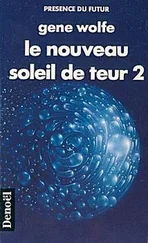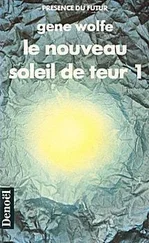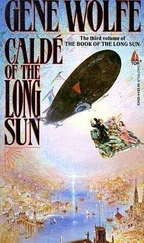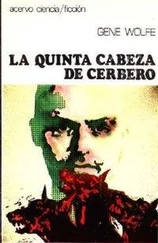Gene Wolfe - There Are Doors
Здесь есть возможность читать онлайн «Gene Wolfe - There Are Doors» весь текст электронной книги совершенно бесплатно (целиком полную версию без сокращений). В некоторых случаях можно слушать аудио, скачать через торрент в формате fb2 и присутствует краткое содержание. Жанр: Фантастика и фэнтези, на английском языке. Описание произведения, (предисловие) а так же отзывы посетителей доступны на портале библиотеки ЛибКат.
- Название:There Are Doors
- Автор:
- Жанр:
- Год:неизвестен
- ISBN:нет данных
- Рейтинг книги:4 / 5. Голосов: 1
-
Избранное:Добавить в избранное
- Отзывы:
-
Ваша оценка:
- 80
- 1
- 2
- 3
- 4
- 5
There Are Doors: краткое содержание, описание и аннотация
Предлагаем к чтению аннотацию, описание, краткое содержание или предисловие (зависит от того, что написал сам автор книги «There Are Doors»). Если вы не нашли необходимую информацию о книге — напишите в комментариях, мы постараемся отыскать её.
There Are Doors — читать онлайн бесплатно полную книгу (весь текст) целиком
Ниже представлен текст книги, разбитый по страницам. Система сохранения места последней прочитанной страницы, позволяет с удобством читать онлайн бесплатно книгу «There Are Doors», без необходимости каждый раз заново искать на чём Вы остановились. Поставьте закладку, и сможете в любой момент перейти на страницу, на которой закончили чтение.
Интервал:
Закладка:
“Thanks, sir.” The bellboy coughed. “Sir, we have these little braziers …”
“Yes,” he said. “I’d like one, if I can have one.”
“They’ve got to be ventilated, but those French doors will take care of that, sir.” The bellboy flashed a lopsided smile. “I’ll bring one up to you.”
“Thank you,” he said.
He was undressing when the bellboy returned. The brazier was a tiny thing, yet far better than nothing. He put it in his bedroom, and when he switched off the light, he found that its copper sides were faintly luminous, aglow with warmth and cheer.
When he woke in the morning, Lara was not there, and every muscle ached. The back of his right hand had been scorched as well as his coat sleeve, and the burn was crusted and painful. The cologne and shaving soap North had bought were still in the bathroom, but neither seemed the right sort of thing to dab on a burn.
Medical was listed on the white plastic card that slid from beneath the telephone. He dialed, and was told that the doctor was not yet in, did not often arrive until later or never during this, the off season, and would (or perhaps would not) call him upon arriving at last. He could not remember his room number, but he said, “I’m in the Imperial Suite, on the top floor,” and the disembodied operator seemed to understand.
It was only when he had hung up that he realized his call had gone through without difficulty, that he had not gotten the twittering voices or Klamm, and that someone—almost the correct someone—had in fact answered.
He resolved to call his apartment again, and at once began to look for something else to do, something that would postpone the moment when he would actually have to dial his own number. He had assumed that the little brazier had gone out, but a few sparks remained, sullenly crimson among the fluffy gray ashes. He added bits of charcoal from a copper can that had accompanied the brazier, then rinsed his fingers in the bathroom, avoiding the burn as much as he could.
His topcoat was ruined. His best trousers would have to be replaced too, but they remained good enough to wear until he got new ones. He dressed gingerly, careful of the burn and thinking more about breakfast than of the call and his apartment, feeling it would be wisest to put both out of his thoughts until it was time to telephone—to telephone and talk to somebody who was not Lara, or no one.
The telephone rang.
He answered. It was the doctor, as he should have guessed. “Understand you’ve a burned hand, sir.”
“Yes,” he said. “I don’t think it’s too bad, but there’s a sort of scab on it.” He decided not to mention the burns he had discovered on his face when he had shaved. The doctor would see them, and would treat them or would not.
“Had a bit of an accident myself. Come on down, sir.” The doctor’s voice sounded vaguely familiar. “I’ll give you some salve and a bandage to protect the skin until it heals. I’m in the basement—the lower level’s what they call it.”
The elevator was a long while coming. He rang three times before he recalled that it required a human operator, who would certainly be annoyed. Today the operator was a morose teenager with pimples.
“Lower level,” he said.
The passing floors that had appeared so forsaken the night before seemed equally deserted now. He felt that he himself was only a ghost, riding a ghostly elevator in a phantom hotel, that this building had fallen to the wrecking ball long ago, that it had been replaced by beach-front condos, silent and sourly white structures haunted by the worm, condos wrapped in white winding sheets of salt, themselves slated for demolition if only someone could be found who wanted the land, who would pay hard cold cash on the barrelhead for their destruction.
The lobby flashed by, empty except for a thin, bespectacled youth at the desk. They landed, helicopter-like, in a windowless cavern of boutiques, all of them shut and dark, each of them (to judge by appearances) more than ready to swear that it was never really open, had never been open at all.
“Which way is the doctor’s office?” he asked.
The teenager pointed.
“And could you tell me how late they serve breakfast in the coffee shop?”
“Until they close,” the teenager said, and slammed shut the wrought-iron door.
He reached the end of the row of shops and turned a corner. The cavernous space was even larger here, enlivened by shelving balconies. Dusty flags like stalactites hung from the ceiling; there were only two or three he recognized. Whose was that two-headed eagle? That griffin clawing the air?
“Up here, sir!”
A fat man in shirtsleeves, leaning on a crutch, was bending over a slender balcony rail to wave to him. He waved in return and mounted a short flight of iron steps that creaked and boomed dully beneath his feet, wondering whether there was an elevator someplace and whether the doctor (who it seemed should not have climbed stairs) had been forced to climb these.
The doctor’s door was the only one that showed a light, an old-fashioned pebbled glass door with an oak frame. Plain black lettering on the glass: C.L. APPLEWOOD, M.D.
Inside there was no receptionist, no nurse. The doctor sat at a desk at the back of a long, narrow room, large of feature, heavy of jaw, and smooth of face, with the high Shakespearean forehead that white hair and encroaching baldness give all men, and an extra chin upon which to display a slick professionalism in shaving and the touch of fine white powder that bespoke the actor.
“Good, good!” The syllables were resonant and constricted. “Good to see you made it, sir! Wonderful! We all made it then, save for poor Daniel. Dead, sir! Yes, dead as a stone, and I could not have saved him, sir, nor could any physician since Hippocrates. They got him, sir! Settled poor Dan once and for all. They got me too, as you’ve seen. A bullet, a thirty-eight I suppose, through the fleshy portion of the thigh. Had they but nicked the femoral artery, sir, you should not see me here! I would be a citizen of a better sphere, with poor Daniel at my side. As it was, I was able to hobble away before the fire—as you, sir, were not I see—our bold Carlos having shot the rascal set to guard the stage door.”
The doctor chuckled; the sound was deep and throaty, like the contented noise, half clucking and half crowing, made by a great rooster.
“And now, sir, if you’ll excuse me for not rising, I’ll excuse you from shaking hands. Let’s see it.”
The Sea in Winter
The coffee shop was empty. A black-and-white sign on a wooden stand read: PLEASE SEAT YOURSELF.
He did so, choosing a small table beside a high glass wall, like the wall of a greenhouse or conservatory. Beyond it stood a low cliff or bluff, or perhaps only one wall of the cavernous, flag-hung arcade he had left; beyond that lay a broad expanse of beach upon which the ocean had erected a duplicate of the quarry he had seen a few years before on a National Geographic special. Expressionless images leaned or lounged here and there among the shattered wrecks of others, some finished, some incomplete, some scarcely begun—all this executed in slabs of greenish sea-ice.
One watched him, a statue some distance down the beach and midway between land and ocean, staring insolently but silently as he took a napkin from a water glass and turned up an inverted coffee cup.
It was impossible that the police should have chosen such a strange means of spying on him, yet he felt they had. In some way they would be watching him, so why not this? Or if it was not really true, it felt true. Klamm and his men would try to account for everybody they had seen on the stage—for him, for North, for the two in business suits, for Dr. Applewood, and for the man in the army uniform. (But he was easy enough to account for—even Dr. Applewood had said so.)
Читать дальшеИнтервал:
Закладка:
Похожие книги на «There Are Doors»
Представляем Вашему вниманию похожие книги на «There Are Doors» списком для выбора. Мы отобрали схожую по названию и смыслу литературу в надежде предоставить читателям больше вариантов отыскать новые, интересные, ещё непрочитанные произведения.
Обсуждение, отзывы о книге «There Are Doors» и просто собственные мнения читателей. Оставьте ваши комментарии, напишите, что Вы думаете о произведении, его смысле или главных героях. Укажите что конкретно понравилось, а что нет, и почему Вы так считаете.










